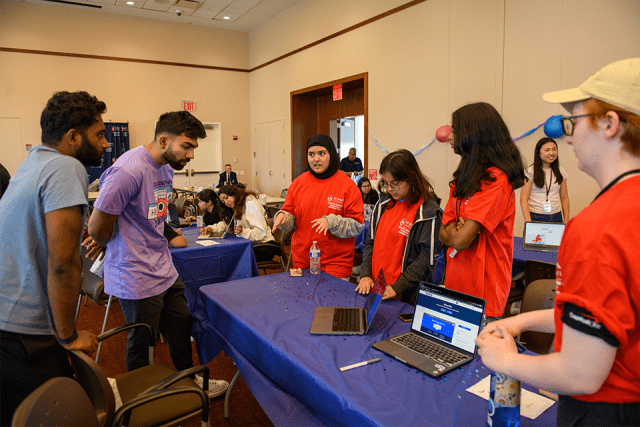
Photo credit: Major League Hacking
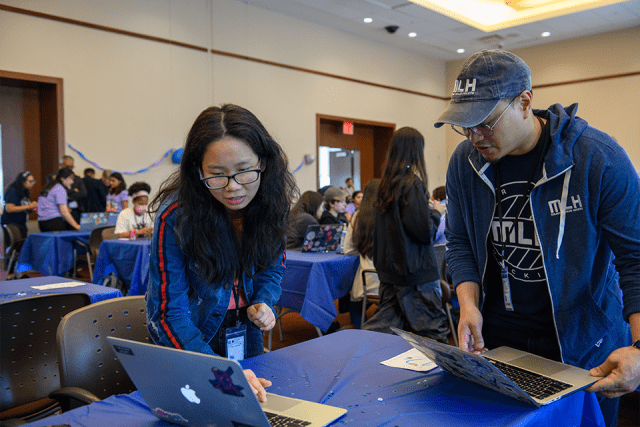
Photo credit: Major League Hacking
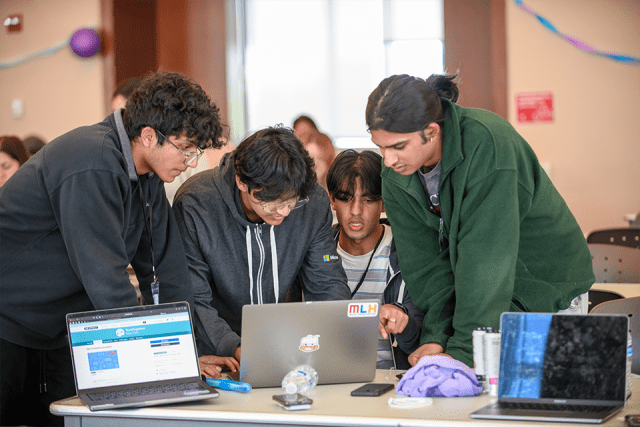
Photo credit: Major League Hacking
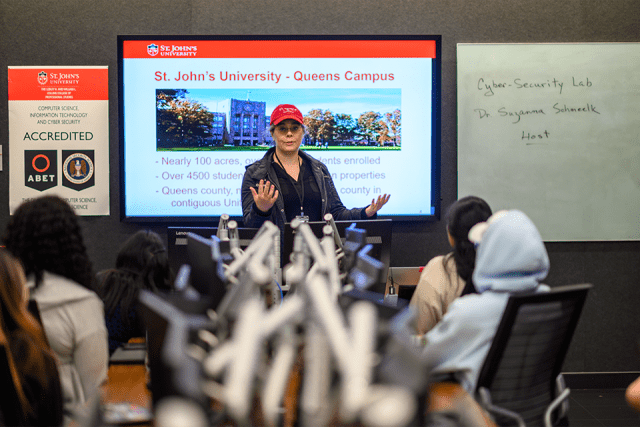
Photo credit: Major League Hacking
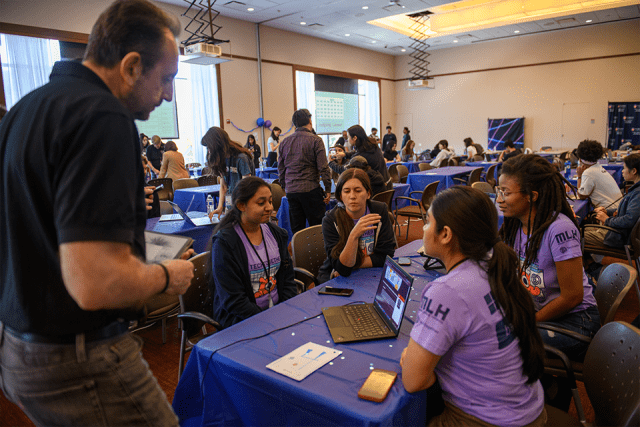
Photo credit: Major League Hacking
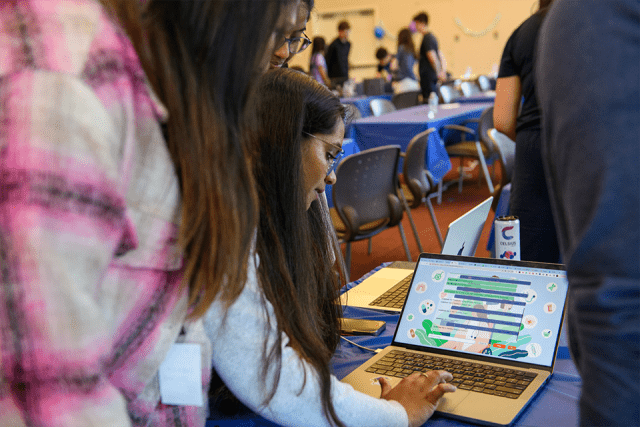
Photo credit: Major League Hacking
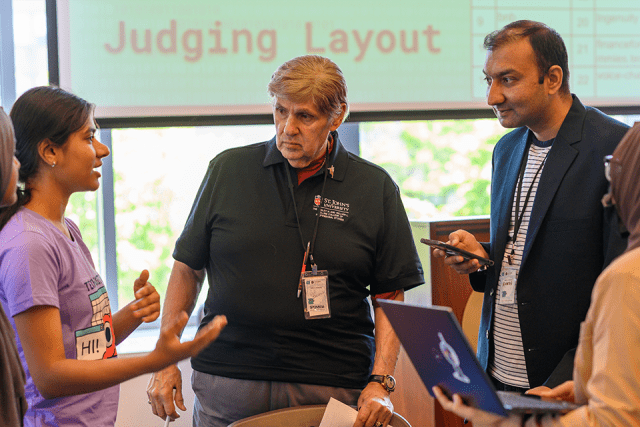
Photo credit: Major League Hacking
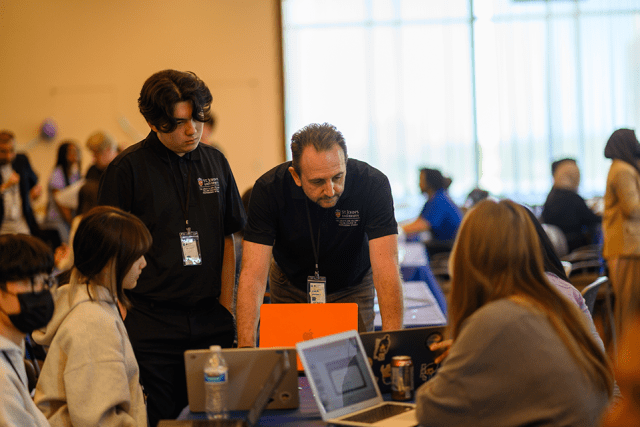
Photo credit: Major League Hacking
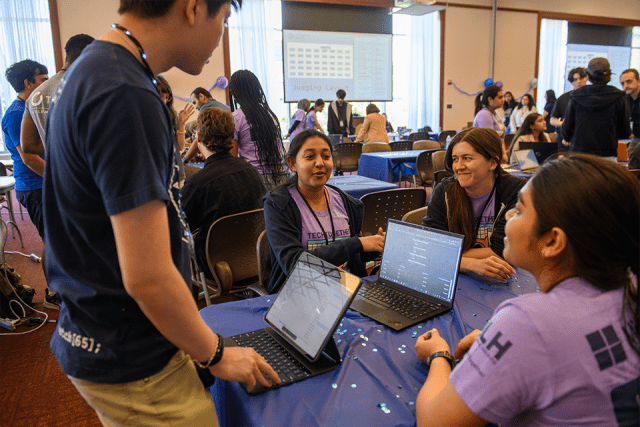
Photo credit: Major League Hacking









A two-day coding marathon at St. John’s University over Memorial Day weekend hoped to shine a light on gender inequities in the programming industry.
Representatives of The Lesley H. and William L. Collins College of Professional Studies partnered with TechTogether New York to present the two-day “hackathon” at the D’Angelo Center on May 27–28. The goal of the event, which attracted more than 80 coders from high school to graduate school, was to open industry doors for women and members of the LGBTQIA+ and nonbinary communities, who have been traditionally underrepresented in programming.
“Women and underrepresented groups are not usually the ones you think of when you consider cybersecurity, computer science, and related industries,” said Joan E. DeBello, Ph.D., Associate Professor of Mathematics and Computer Science; and Chair, Division of Computer Science, Mathematics and Science. “It is important to connect with that next generation of technology students. It is also important to have female role models in the industry.”
Hackathons are social coding events that bring together programmers, computer science students, and others interested in technology to improve upon or create new software programs. They have become increasingly popular as interest in tech careers has soared. The St. John’s event awarded prizes for the best artificial intelligence code, the best cybersecurity enhancement, and more. Judges came from among industry professionals, members of St. John’s faculty and administration, as well as students in the University’s Cyber and Information Security, Cyber Security Systems, Computer Science, and Homeland Security programs.
As popular as tech careers have become, however, fewer than one in four programming positions are filled by women and other underrepresented groups, according to Major League Hacking, the parent company of TechTogether. At St. John’s, Major League Hacking found a partner equally committed to enhancing equity and inclusion in the programming field.
“The Collins College of Professional Studies has worked tirelessly to ensure that all members of our community can benefit from our educational opportunities,” said Rachel Pereira, Ed.D., J.D., Vice President of Equity and Inclusion at the University. “Providing opportunities for all is central to our mission at St. John’s University, and this was such a fun way to do it.”
The St. John’s session was one of six TechTogether organized this academic year in cities from Boston, MA, to Seattle, WA. In addition to project development and skills building, attendees of the St. John’s event engaged in professional development workshops and networking opportunities.
Holly Dukacz, who won the Gold medal as the highest-ranking student in the Cyber and Information Security program, reminded competitors, especially those from underrepresented groups, to remain steadfast in pursuit of their tech ambitions. When she was a first-year student, Holly was one of only three females among 30 students in a programming class. Next year she will earn her master’s degree as part of a five-year, dual-degree program she completed in four-plus years.
“I knew I was capable of making a difference in the cyber world, even if it meant facing more rigorous course work or coping with feelings of self-doubt,” Holly said. “I was not going to let the challenge of being in a gender minority stop me from accomplishing my goals. If a programming career is something you really want, your determination and work ethic will speak for itself.”
Luca Iandoli, Ph.D., Dean and Professor, The Lesley H. and William L. Collins College of Professional Studies, said the partnership with TechTogether benefits the company, the University, and, most of all, St. John’s students who will be better trained to spot emerging industry trends.
“Promoting diversity in the computing industry is part of a strategy to increase access to learning and employment opportunities by our diverse student body,” Dean Iandoli said. “Our computing programs will benefit from increasing this diversity even further to better serve the job market, while making well-paid and high-potential careers accessible to underrepresented groups.”
Related News
Q&A with School of Education Alumna Linda I. Rosa-Lugo, Ed.D. ’77ED, ’79M.S.Ed.
Linda I. Rosa-Lugo, Ed.D. ’77ED, ’79M.S.Ed., recently accepted a new role as President of the American Speech-Language-Hearing Association (ASHA). Prior to this, Dr. Rosa-Lugo has been an active...
Insurance Leader of the Year Dinner Raises $3.6M for GSRM Students
A global gathering of aspiring students, insurance industry executives, and other supporters of the Greenberg School of Risk Management, Insurance and Actuarial Science (GSRM)—part of The Peter J...
TSOE Alumna Appointed Director of Curriculum in Amityville
Jessica Kemler ’99ED,’22Ed.D.—a double alumna of The School of Education at St. John’s University—began the new year as the new Director of Curriculum in the Amityville, NY, School District. “We are...
